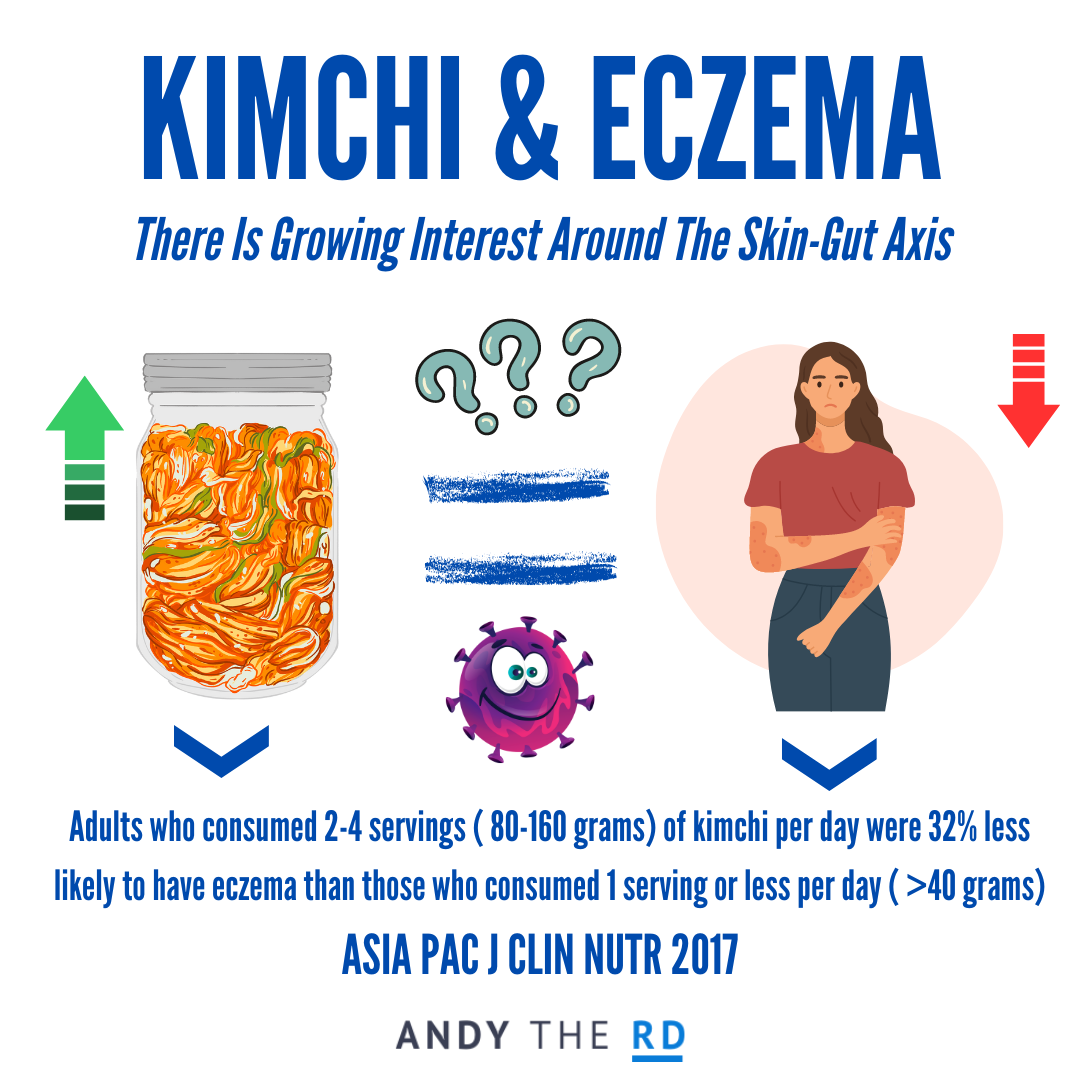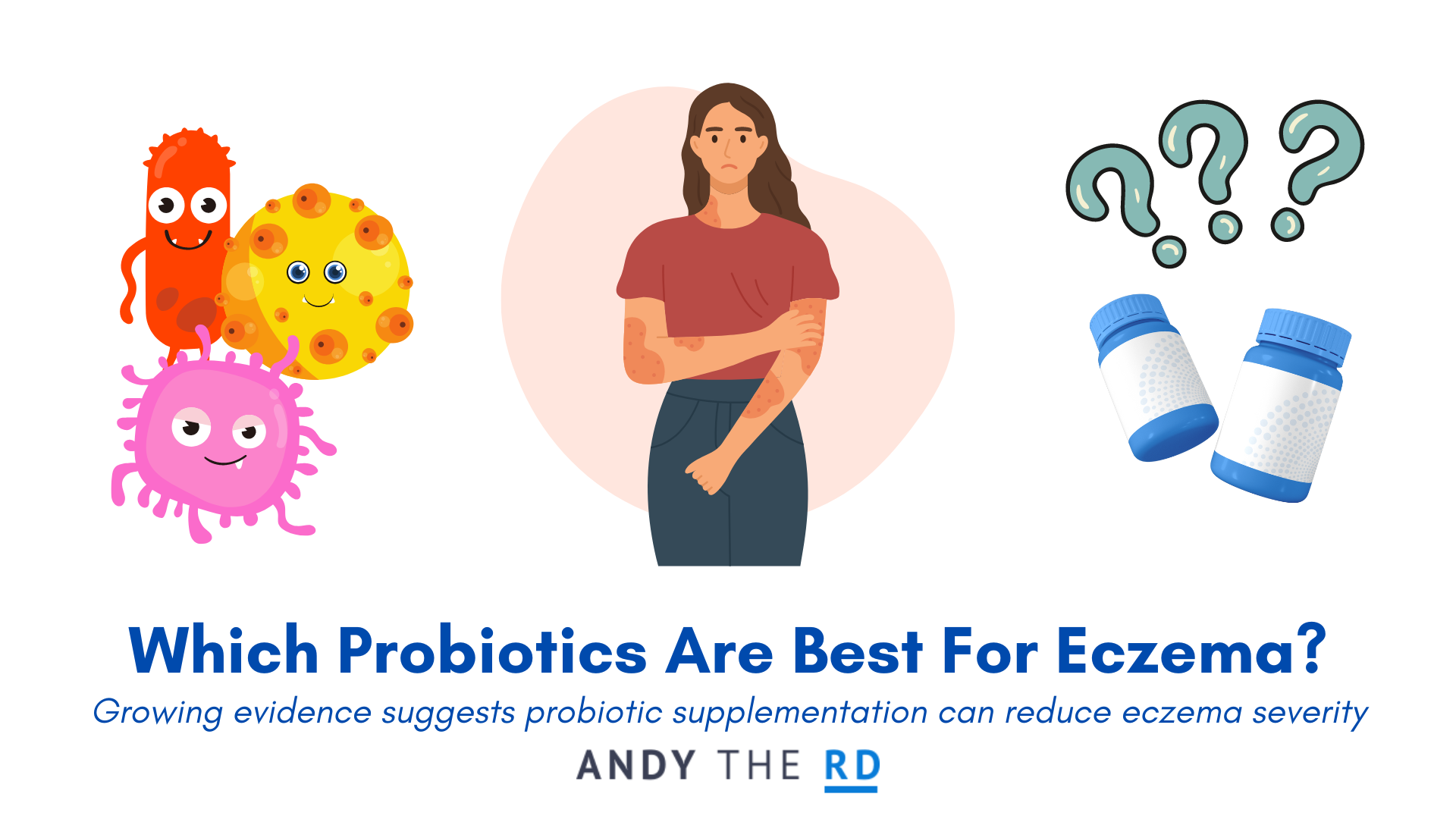Eczema is an inflammatory skin condition characterized by itchiness, dry skin, scaling and rashes.
There are several different types of eczema, with Atopic dermatitis (AD) being the most commonly diagnosed and thus most well studied as a result.
Itching is the marquee symptom of AD, and the condition can understandably have a significant impact on the quality of life of sufferers which includes up to 20% of children and 3% of adults according to recent estimates.
It has been suggested that 1 in 10 people will experience eczema at some point in their life, again underlining the importance of scientific inquiry into eczema management.
Which brings us to the topic of today’s post.
The Skin-Gut Axis
There is simply no avoiding the fact that a significant proportion of health issues are at least partially connected to the human digestive tract, particularly the gut microbiome.
This is likely the case for eczema as well, with growing evidence suggesting that eczema sufferers have a poorer balance between good/bad bacteria than healthy controls.
The gut-skin connection is a real thing and means that one’s skin health is strongly related to the state of their gut health and microbiome, which is mediated by the microbiome’s role in proper immune functionality and numerous anti-inflammatory mechanisms.
Probiotics For Eczema
Probiotic supplementation has garnered a great deal of interest in the world of eczema management because probiotics have the potential to contribute to re-shaping the gut microbiome and contributing to the restoration of the balance between good and bad bacteria.
This of course is a bit of a theoretical oversimplification, but let’s take a closer look at the best available evidence to see if probiotics actually help people living with eczema.
Reviewing The Evidence
Included below are the details and results of a number of randomized controlled human clinical trials (two in adults, two in children) which will help to shape our understanding of the potential benefits of probiotic use in the management of eczema.
You’ll notice I mention SCORAD throughout, which is simply a medical scoring system that helps determine the severity of one’s eczema.
European Journal Of Dermatology 2021
Who: 80 adults with mild-to-severe atopic dermatitis.
For How Long: ~ 2 Months
Probiotics Used: Lactobacillus blend (L. plantarum PBS067, L. reuteri PBS072 and L. rhamnosus LRH020)
Outcome: Improvement in skin moisture, smoothness and a decrease in SCORAD and levels of inflammatory markers.
JAMA Dermatology 2018
Who: 50 children with moderate AD
For How Long: ~ 3 months
Probiotics Used: Lactobacillus & Bifidobacterium blend (Bifidobacterium lactis CECT 8145, B longum CECT 7347, and Lactobacillus casei CECT 9104 )
Outcome: Improvement in SCORAD index and a reduction in use of topical steroids.
Frontiers In Nutrition 2022
Who: 48 adults with atopic dermatitis
For How Long: ~ 6 months
Probiotics Used: Lactobacillus & Bifidobacterium blend (Lactobacillus rhamnosus, Lactobacillus acidophilus, Lactobacillus paracasei, and Bifidobacterium lactis)
Outcome: Improvement in SCORAD index and less immunosuppressant medication use
Clinical and Experimental Dermatology 2023
Who: 70 younger people, aged 4-17, with AD.
For How Long: ~ 3 months
Probiotics Used: Multi-species combination of Bifidobacterium lactis, Bifidobacterium longum and Lactobacillus casei
Outcome: Improvement in SCORAD index and reduced need for topical steroids after 6+ weeks of treatment
From the summative perspective, a recently published meta-analysis including a total of 6 randomized controlled trials looking at probiotic use in adult eczema determined that probiotics consistently demonstrated a reduction in the SCORAD index.
Final Thoughts
A growing body of human evidence points to probiotics having a complimentary role to play in improving the severity of eczema in both children and adults.
Whether or not the magnitude of these improvements is meaningful enough to suggest widespread probiotic use among eczema sufferers is much less clear.
Future research will hopefully help to clarify their role further.
As always, it is wise to consult to your healthcare provider to resolve uncertainty around the use of supplements of any kind in the management of any condition – including eczema.
Until next time,
Andy De Santis RD MPH
Bonus Content – Vitamin D & Eczema
In 2022 the American Journal Of Clinical Dermatology conducted a systematic review and meta-analysis on the influence of Vitamin D status on eczema severity.
They found that people with less severe eczema tended to have better Vitamin D levels and that Vitamin D supplementation contributed to symptom improvement.
As per complimentary work out of the Nutrients journal, daily doses 1600 IU may be required to achieve this effect – as always be sure to confer with your healthcare team.
Bonus Content – Fermented Foods & Eczema
Fermented food intake is known to improve the gut microbiome and lower inflammation, which immediately makes fermented foods topics of interest in the world of eczema management.
While no studies exist demonstrating that increasing one’s fermented intake directly improves eczema symptoms, there is some observational evidence in this area.


Further Reading That Might Help
Eating more Vitamin E may help!



